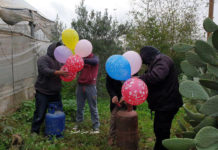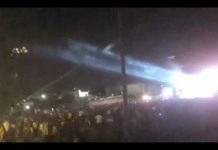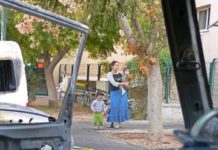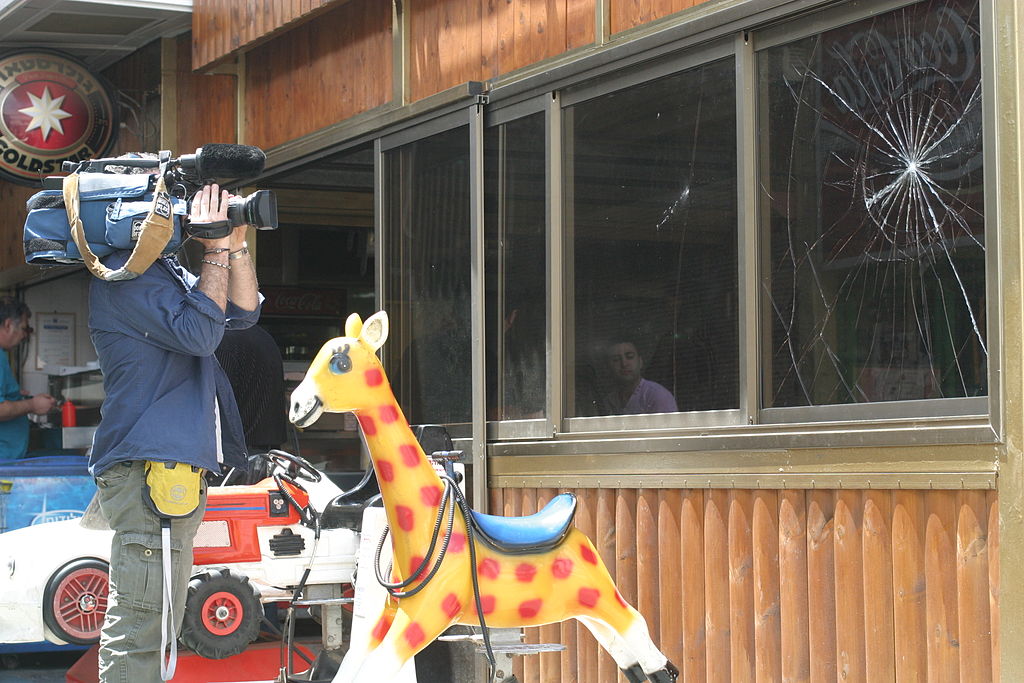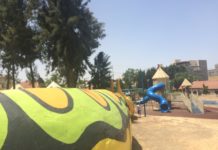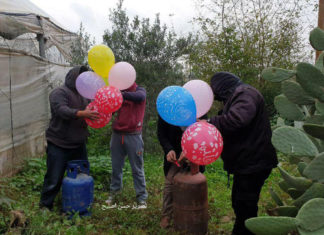This is the first part of a New Voices series on Sderot. Find the second part of the series here.
The chapel at my Episcopalian boarding school was shaped like a crucifix.
I always tried to find a seat in the back corner so no one would see me when the reverend asked us to bow our heads. Instead, when the prayers mentioned Jesus, I would look at the ceiling and say the she’hecheyanu. It was the only blessing I remembered.
One summer in college, I again found myself looking at the ceiling. This time, instead of being the only Jew in the room, I was the only one going to Sderot.
“It’s that place where all the rockets are falling,” I would tell my friends about the embattled southern Israeli town near Gaza. The Career Israel internship program had set me up to be a media intern with the Sderot Media Center, which documents rocket attacks on southern Israel. In the program, I would film lives under attack and edit my footage, which the center would then broadcast to the public.
“Are you crazy?” my friends would say. I couldn’t help asking myself the same question.
Career Israel had made the decision easy for me by taking care of most of the logistics. When I found myself alone in the back of Tel Aviv’s Central Bus Station, though, the weight of my choice hit me. The other terminals were packed with eager travelers, but I was the only one on my way to Sderot.
When I got there, I saw a bomb shelter next to the bus stop, I couldn’t help but think back to the alarming films I had witnessed in preparation for the trip–the heart-stopping tzeva adom, or code red, and the physical and psychological damage that went along with it.
I jumped into the shelter, ready for any signal of the approaching attack. After a few minutes of no explosions, I poked my head out to find that my shelter was one of several in a row. I darted for the next–also empty. I was the only one jumping from shelter to shelter.
I had expected to see the Sderot residents with nervous expressions and panic-stricken eyes. I imagined terrorized buildings surrounded by rubble. Instead, I found students lounging on the grass or sipping coffee at picnic tables, elderly woman carrying groceries and children eating ice cream.
One of my first assignments was with the Sderot Treatment Theater Project, an initiative to offer teenage girls a coping strategy through theater therapy. The girls had compiled their experiences in a script that they met daily to rehearse.
The girls at the rehearsal were practically the same age as me, but unlike American teens they weren’t practicing for a musical. Instead, their challenge was to reconstruct the trauma of their everyday life in order to achieve some kind of relief from the stress.
When the time came for a reenactment of the tzeva adom, I lost all sense of what I was doing. Shattering screams filled the room. The girls ran in every direction. They buried their faces in one another and huddled–anticipating the danger that approached them. A large crash sounded and one girl lay still on the stage, a symbol of those that were killed during the attack. The girls cried over her lifeless body.
Then the director yelled, “Cut!” and the moment was over. Somebody pulled the girl off the ground and they continued on to the next scene. Later, my footage would become a promotional video for the Sderot girls’ play, and they would perform “Children of Qassam Avenue” at the Knesset almost a year later.
These girls are alone and I am alone. They will keep struggling to make the rest of the world know what it is to go through life in Sderot–no matter how many times they perform the play, and I will still be unable to explain to my friends why I went to Sderot–no matter how many times I talk about commitment and sacrifice. But what they’ve learned, what this play has taught them, is that what matters most is that they can explain it to themselves.
And now I know that it doesn’t matter whether I can answer others when they ask me why I went to Sderot, or why I insisted on saying a Jewish prayer in a Christian school. Watching these girls leave the rehearsal, I understood that what mattered was that I knew the answer, even if I was the only one.



